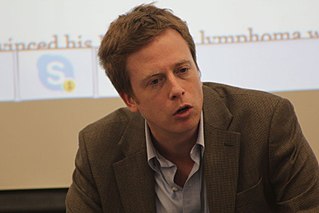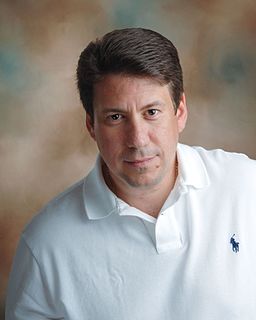A Quote by Cornel West
Racism is a moral catastrophe, most graphically seen in the prison industrial complex and targeted police surveillance in black and brown ghettos rendered invisible in public discourse.
Related Quotes
For most Black people there is still poverty and desperation. The Ghettos still exist, and the proportion of Blacks in prison is still much greater than Whites. Today, there is less overt racism, but the economic injustices create an "institutional racism" which exists even while more Blacks are in high places, such as Condoleeza Rice in Bush's Administration and Obama running for President.
I think the biggest problem in our country is mass incarceration and the prison-industrial complex. From the Rockefeller drug laws to stand your ground to stop and frisk, all these are pointing people, especially and disproportionately black and brown people, towards the criminal-justice system. It's depleting whole generations of people.
The merging of the military-industrial complex, surveillance state and unbridled corporate power points to the need for strategies that address what is specific about the current warfare and surveillance state and the neoliberal project and how different interests, modes of power, social relations, public pedagogies and economic configurations come together to shape its politics.
If you talk about the prison-industrial complex, I've fought against the prison-industrial complex when I called for a repeal of the Rockefeller drug laws. The biggest impediment to get the laws changed was the lobbyists. Whether you're talking about healthcare, jobs going overseas, or tax reform, you're always coming up against lobbyists.
The prison-industrial complex employs millions of people directly and indirectly. Judges, prosecutors, defense attorneys, prison guards, construction companies that build prisons, police, probation officers, court clerks, the list goes on and on. Many predominately white rural communities have come to believe that their local economies depend on prisons for jobs.
The prison industrial complex, to put it in its crassest term, is a system of industrial mass incarceration. So there's what you call bureaucratic thrust behind it. It's hard to shut off because politicians rely upon the steady flow of jobs to their district that the prison system and its related industries promise.
The most important things in life can't be seen with the eyes. Ideas can't be seen. Love can't be seen. Honor can't be seen. This isn't a new concept. Judaism and Christianity and Islam and Buddhism and Taoism have all taught for thousands of years that the highest forms of reality are invisible. God is invisible, and he created the universe. Our souls are invisible, and they give life to our bodies. Angels are invisible, and they're the most powerful of God's creatures.
By the end of the documentary [ '13th'], you really understand what prison is, what the prison industrial complex is, where this whole Black Lives Matter movement comes from, the history of resistance, the history of how politicians have used criminality over the decades for a particular political gain. It's to give people an understanding of it so they can make their own decisions about how they want to be in the world.
The prison-industrial complex, poverty, and the school system has more effect on a young black male in America than Jay-Z does, by far. And that's not a diss to Jay-Z. The crime rate in the black community was high before hip hop. Rapping about it is just a reflection of the life a lot of people are living.
If we start treating addiction as a public health issue, with more compassion, and without the criminal element, our society will be better off and violence and public safety will improve as a result. We'll also be taking a big step in taking down the prison-industrial complex that disproportionately harms communities of color.



































